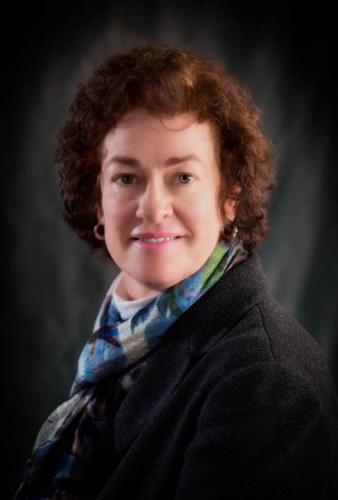How to Remake Democracy: A Q&A with Jennifer Morrison

After 40 years of working in Illinois state politics as a legislative and gubernatorial staffer, contract lobbyist, and coalition manager, Jennifer Morrison reflected on the challenges in today’s political climate to making representative democracy work. She concluded that women legislators are among those most likely to be part of the solution. To further explore this topic, Morrison interviewed 11 women who served in the Illinois legislature and analyzed their insights – along with her own observations and analysis – in a manuscript entitled The Value of Collaborative Policymaking: A Perspective from Women Participants in the Illinois General Assembly.
In the Q&A that follows, Jennifer shares more about her manuscript, her experiences in and perspectives on women in government, and her advice for women interested in pursuing political roles.
****
You recently retired after more than thirty years of work in and around Illinois state government. Can you share more about why this project was a priority for you so soon after you left your work in the state legislature?
This essay is specifically about the perspective of women participants in the Illinois General Assembly because that is my experience. But its importance, I think, is more far-reaching. I am concerned about the future of democracy.
The actions of legislators and other participants in the legislative arena have impact on millions of people. In order for the decisions made in this process to be considered valid by those the legislators represent, all voices need to be heard and respected so they can be factored into the decisions. I have had conversations with colleagues and legislators over the course of my career lamenting the divisiveness of the process and the inclination for the “winners” in the political process to exclude all those they don’t agree with. Privately, many agreed with my concerns. Others who enjoyed the fruits of the process were dismissive. I thought that writing this and sharing it might help those in a position to affect change to reconsider some of their approaches and focus more on collaborative policymaking.
You argue that women are key to promoting more collaborative policymaking in the state legislature. What did you find – whether from your own experience and observation or from your interviews with former women state legislators – that led you to make this claim?
I certainly observed over the course of years the collaborative approach these women (and many others) took to resolve policy issues, but I think the women I interviewed said it best. Every one of the 11 women talked about the importance they placed on collaboration and about the satisfaction they received from acting collaboratively. I think that satisfaction comes from knowing that collaboration can be much more difficult than simply pushing your own agenda through, even if you have the votes to do that. It’s important to include multiple opinions. That’s why we elect representatives and senators from all areas of the state and from all different walks of life.
One of my favorite quotes came from a former Democratic woman senator: “I think overall women are more collaborative in the way they do things, and they are more concerned about the outcome and what that means for people than just about their own political power…The most rewarding things are when you really do work across the aisle, across chambers, really work collaboratively to actually get stuff done.”
A former House Democrat hinted at how to be collaborative when she said this: “The women — we worked together. When we went, and I served under three governors, we would come up with an agenda. We didn’t sit around and talk about what we disagreed with. We talked about what we agreed on…We just didn’t spend any energy on where we differed. And that’s how you get things done.”
The women you interviewed also point to their distinct experiences within the state legislature, sometimes negative. You’ve had the benefit of working in the state legislature for more than three decades. What changes have you seen – if any – in the gendered culture of the legislature, not only for members but also for staff and lobbyists?
The significant number of women involved in elected, staff, and lobbyist roles is a big positive from my perspective. With the increase in overall numbers, it seems to me that women have become much more likely to be visible in their roles and not just operating behind the scenes. They are more likely to do substantive work, chair committees, hold leadership positions, staff key committees, and lobby significant issues. I feel like this is still sometimes more for show than for real, but it is progress nonetheless.
When I started on staff in the early 1980s there were about 30 women (out of 177 total legislators) in the Illinois House and Senate. Today that number is 73. In the 80s, women didn’t have access to restroom facilities on the House floor, but men did. Women were regularly subjected to overt sexual harassment, which particularly affected staff. There was much less support for women in the 80s than there is today.
A record number of women now serve in the Illinois legislature and a record number of women state legislators now serve nationwide. How has the growth in women’s legislative representation contributed to legislative culture, processes, and outcomes?
We are definitely dealing with issues today – such as sexual harassment laws, mental health policies, and others – that are driven by the women in elected, staff, and lobbying positions. Women in Illinois have also tried to make changes to the processes to increase the power of individual members in relation to their leaders.
In terms of outcomes, I do think, from a cultural perspective, women have shown themselves to be more concerned about ethical behavior, and that concern – given the growing number of women legislators, staff, and lobbyists – has improved the ethics of the entire process, though we still have more to do on ethics. The presence of women has also opened up the process for many who wouldn’t have previously felt that their perspectives were included in policy deliberations.
Despite these positives, the fact that women are operating in the current system – which rewards winners and punishes losers – rather than promoting collegial and collaborative work means the impact of women legislators on collaborative policymaking is still more limited than it should be.
A key emphasis of your essay is on making representative democracy work better. Can you give advice to women – both elected and unelected – on how they could contribute to this larger goal?
Again, I think the former legislators I interviewed said it best when they were giving advice to women who might want to be involved in the legislature. They said:
- Do the work. That involves communicating with constituents as well as doing the homework on policy issues to enable themselves to succeed in negotiating workable solutions to the challenges they are trying to address.
- Collaborate across the lines. The women I interviewed all talked about the importance of and satisfaction from reaching across partisan, geographic, racial, and ethnic lines.
- Do the right thing. This includes staying true to yourself, despite the pressures that might push you to abandon your principles. It is important to find a person or a small group of people that you trust enough to help keep you properly focused. Good politicians have trusted advisors who can be critical of the politician when they think it is in his or her best interest. This keeps you grounded.
I would add one last thing:
- Run for office because you have a goal or goals that you want to accomplish. So many legislators want the job for the sake of the title and the perks. Over and over, these women I interviewed talked about the reasons they ran for office — fighting corruption, bettering the lives of people in the communities they represent, helping educate constituents about how they can impact their government, protecting local government and local residents’ rights, addressing high property taxes, etc. Having substantive goals means you are focused on real issues and real-world impact, and less on yourself and your own ambitions.
In your own role as a political practitioner often navigating male-dominated spaces, you serve as a role model for other women. For those women who may seek to have an influence on politics and policy without holding office, can you share some thoughts and/or advice about pursuing political roles like those you have held?
As a high school and college student, I became actively involved in political organizations and I saw from that vantage point the significance and the comprehensive nature of the impact politics and policymaking has on all of us. I wanted to be in the middle of the complex discussions about how best to approach these public issues, but I didn’t want to run for office. I wouldn’t have known how. And I have always preferred the behind-the-scenes roles. My advice for those wanting to become involved in the non-elected side of politics and policymaking is simple:
Find a group or organization that you can support and have an interest in, one that is engaged in public issues and with which your views are compatible. Get involved with that group. This will help you learn the issues, the players, and how to have impact. Many people think of lobbying as a clout-driven exercise, meaning that you will succeed if you have clout with the elected officials in office. Those relationships are definitely important, but I found that my ability to succeed came from:
- relationships (built over the course of previous work I had done);
- the ability to listen and to accurately read what people were telling me;
- the ability to put myself into someone else’s shoes to understand what might motivate and move them on an issue;
- the ability to communicate concisely with relevant information; and
- determined, polite persistence.






